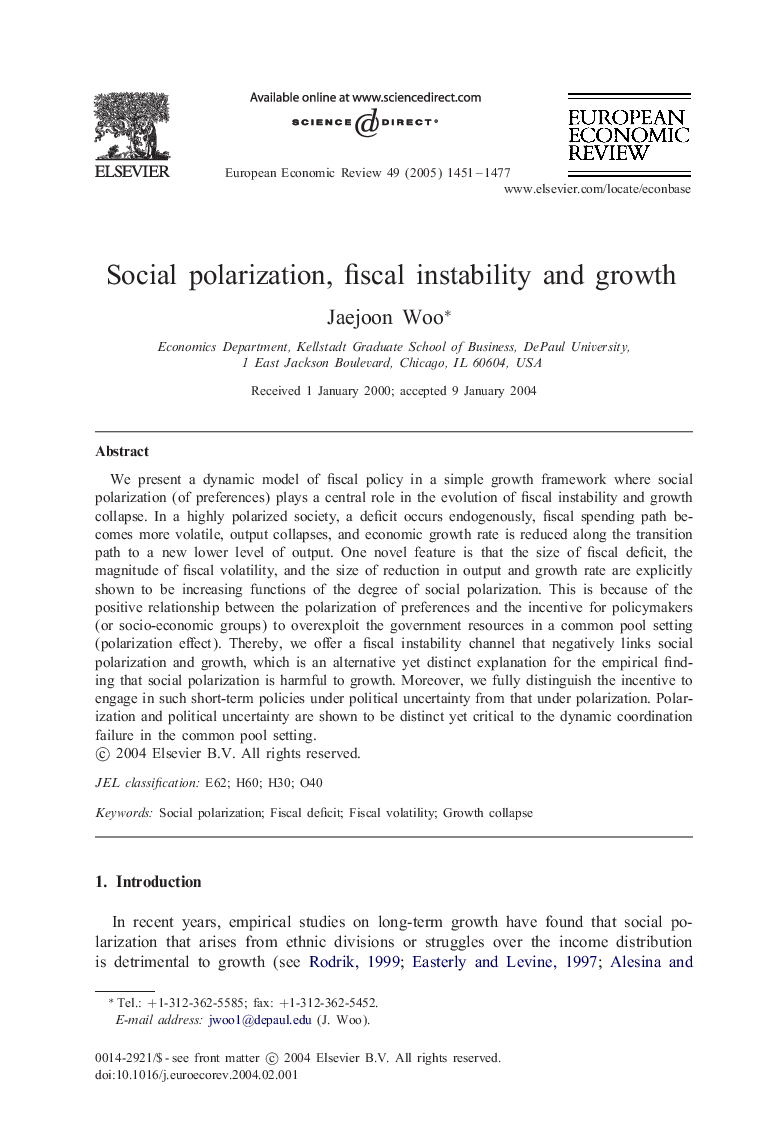| Article ID | Journal | Published Year | Pages | File Type |
|---|---|---|---|---|
| 9551095 | European Economic Review | 2005 | 27 Pages |
Abstract
We present a dynamic model of fiscal policy in a simple growth framework where social polarization (of preferences) plays a central role in the evolution of fiscal instability and growth collapse. In a highly polarized society, a deficit occurs endogenously, fiscal spending path becomes more volatile, output collapses, and economic growth rate is reduced along the transition path to a new lower level of output. One novel feature is that the size of fiscal deficit, the magnitude of fiscal volatility, and the size of reduction in output and growth rate are explicitly shown to be increasing functions of the degree of social polarization. This is because of the positive relationship between the polarization of preferences and the incentive for policymakers (or socio-economic groups) to overexploit the government resources in a common pool setting (polarization effect). Thereby, we offer a fiscal instability channel that negatively links social polarization and growth, which is an alternative yet distinct explanation for the empirical finding that social polarization is harmful to growth. Moreover, we fully distinguish the incentive to engage in such short-term policies under political uncertainty from that under polarization. Polarization and political uncertainty are shown to be distinct yet critical to the dynamic coordination failure in the common pool setting.
Related Topics
Social Sciences and Humanities
Economics, Econometrics and Finance
Economics and Econometrics
Authors
Jaejoon Woo,
